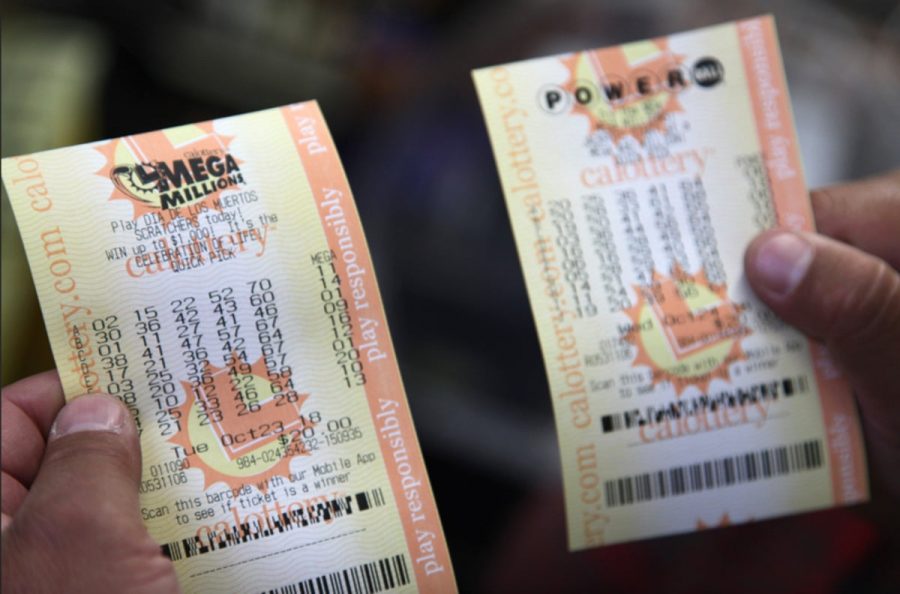Low-income communities likely paid for your HOPE scholarship
December 5, 2019
The ad has everything, and I mean everything. Narrating a montage in which adorable elementary school students practice their penmanship and a throng of culturally diverse blue-robed college graduates smile for the camera, the CEO of the Georgia Lottery Corporation, Gretchen Corbin, who looks more like someone’s grandmother than a state-appointed bureaucrat, celebrates education, dreams, opportunity, capitalism triumphant.
It’s a remarkably inspiring sales pitch for a product kept in the same part of the store as cigarettes.
The promotional video from the GLC paints a rosy picture of the state lottery, which has funded educational programs in Georgia since the early 90s, with the aphorism “when you play, our students win.” However, this deceptively simple promise obscures the danger, inequality and hopelessness of the lottery that finances the HOPE and Zell Miller scholarships.
While the scholarships themselves have improved social mobility, the lottery is far from forward-thinking. Empirically, lotteries act as what economists consider to be a regressive tax—that is, a tax on the poor, operating on a fairly predictable principle: the less you have, the more you pay.
Nationwide, more than half of all lottery tickets, according to the economist Arthur C. Brooks, are bought by the poorest third of Americans. With limited opportunities and often inadequate education, that consumer group finds the slim odds of winning the PowerBall more probable than that of the practically impossible: social mobility.
Similarly, racially disadvantaged groups have also disproportionately fallen victim to state lotteries. Vox estimates that African Americans spend five times as much as white people on lottery tickets.
At the end of the day, of the month, of the year, the cost of scratch-offs adds up — especially for the poor. With less to give, low-income players end up paying a higher percentage of their income in pursuit of the rare jackpot. Former Governor of Indiana Mitch Daniels explains that as “a percentage of income, the money spent by low-income people is 10 times that of wealthier residents who play the lottery.”
However, after dismal returns and lighter pockets, poor players of the lottery often have to siphon away from necessary spending. Brooks quantifies that, after a state lottery is introduced, “the bottom third of households shift about 3% of their food expenditures and 7% of their mortgage payments, rent and other bills” to keep playing.
Still, this tax on the poor is voluntary, which makes state lotteries stomachable. You don’t have to pay, you don’t have to play, so a staunch libertarian might argue that the people who blew their paycheck on Mega Millions or Fantasy Five deserve what came their way. After all, they were consenting adults. No one forced them.
Then shouldn’t the state of Georgia sell cigarettes, or snake oil for that matter, to raise money? The hypothetical policy, while obviously distasteful, would be cut from the same cloth. Smokers would be able to consent, and why, at an ethical level, is nicotine addiction any different from gambling addiction, with its physiological effects?
Ultimately, we understand both of these predatory policies are unjust. Just because people are vulnerable, desperate and uninformed enough to burn money on the lottery, doesn’t mean they deserve to be fleeced.
And even if one wanted to generate capital, employing a lottery is not the most fiscally responsible way to do it. More than 70% of what players spend on tickets is used for prizes, gaming expenses, operating expenses and commissions to retailers. The Georgia Lottery openly acknowledges that only 26.6% of proceeds from the lottery actually end up subsidizing educational programs such as HOPE and Pre-K in Georgia. If that doesn’t sound wasteful, it should. When does the IRS operate at a 70% overhead cost?
Nevertheless, the benefits of lottery funding are impossible to ignore. Funded by the Georgia Lottery, the HOPE Scholarship, according to business analyst Alex Edquist “has improved Georgia colleges and access to higher education; the rise of both the University of Georgia and Georgia Tech into the top twenty public colleges has been partially attributed to HOPE (which increased the SAT scores of students attending Georgia colleges by 40 points and tripled the proportion of high-scoring Georgia students attending college in-state), and increased the numbers of both white and black students attending college.”
But making a college education affordable is not politically impossible. Multiple presidential candidates have broadcasted strategies to accomplish what HOPE does on a federal level if they emerge victorious in 2020. From former HUD secretary Julián Castro’s “People First Education” proposal to Senator Elizabeth Warren’s “Affordable Higher Education For All” plan, alternative funding mechanisms for universal public college exist, whether in the form of categorical grants or federal education spending.
Rather than relying on problematic, regressive programs like the lottery to keep programs afloat, the U.S. government should consider progressive taxation—taxes where the richer someone is, the more they pay. Adding a wealth tax, making the federal income tax more progressive or raising the capital gains tax would invest in not just the poor and dispossessed, but also in a waning middle class.
UC Berkeley economists Emmanuel Saez and Gabriel Zucman estimate that Warren’s 2% tax on assets of those with a net worth above $50 million, so-called “ultra-millionaires”, and 3% tax on billionaires would generate $2.75 trillion over a decade (Washington Post). Warren estimates that the two-cent tax could “provide universal Pre-K, universal free college, knock back student loan debt for 95% of Americans—and [we would] still have a trillion dollars leftover.”
With a Republican-controlled Senate and White House, these radically progressive proposals are very unlikely to come to fruition, at least until the next electoral cycle. At a local level, abolishing the Georgia lottery without a federal replacement would jeopardize the education of thousands of students.
For now, the state of Georgia sits between a rock and a hard place. On one hand, lotteries impose an enormous burden on the poor. On the other, practical alternatives such as federal programs seem politically impossible under the current administration. But HOPE is not lost—remember educational policies during the 2020 election.






